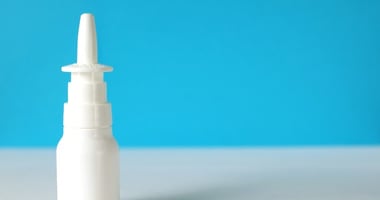In patients with treatment-resistant depression who responded to intranasal esketamine plus an...
Experimental Nasal Spray May Treat Social Anxiety Disorder, Study Indicates
 |
Researchers at several institutions conducted a phase 2, multicenter, randomized, double-blind, placebo-controlled, single-dose study of PH94B. Ninety-one women aged 19 to 60 with generalized social anxiety disorder received placebo intranasal spray (single-blind) 15 minutes before laboratory-simulated public-speaking and social-interaction challenges. Patients who experienced significant distress during at least one challenge returned a week later to receive either intranasal PH94B or placebo aerosol spray (double-blind) before repeat challenges.
Patients who received PH94B during the second set of challenges had a significantly greater decrease in mean Subjective Units of Distress scores during the public-speaking and social-interaction challenges, compared with the first set of challenges, than did patients who received placebo for both sets of challenges. A significantly greater proportion of the PH94B group were much or very much improved from the first to the second sets of challenges, compared with the placebo group (75% and 37%, respectively).
“Continued positive findings for PH94B would suggest a novel mechanism of drug action via human nasal chemosensory receptors,” the researchers said. “If so, this could lead to the ability to treat psychopathological states with nanomolar doses of drugs that do not even enter the systemic circulation and may represent a distinct advance in psychotherapeutics.”
To read more about research into treatments for social anxiety, see the Psychiatric News article, “CBT Proves its Mettle in Social Anxiety Treatment.”
(Image: Tashatuvango/shutterstock.com)





